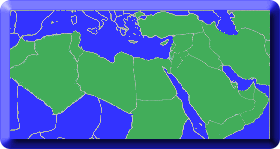
Topics in Middle Eastern and North African Economies
Document Type
Article
Publication Date
5-1-2018
Journal Title
Topics in Middle Eastern and North African Economies
Volume
20
Issue
1
Publisher
Middle East Economic Association and Loyola University Chicago
Abstract
Over the past 40 years, the impact of immigration on employment, wages and other economic indicators has been robust and continually increasing. The relationship between migration and unemployment is determined by the characteristics of immigrants. This paper assesses the impact immigration has on economic development and unemployment in Saudi Arabia by explaining the shape of the causal relationship between immigration and economic performance on a macroeconomic scale. The data used for Saudi Arabia contains annual observation in the period between 1990 and 2010. With an econometric analysis based on the Jarque-Bera test for normal distribution, Dickey-Fuller for unit root test, Johansen cointegration tests and a vector error correction model test, we reveal that there is no cointegration among the variables. The Granger causality test explains that when the level of immigration raises, GDP per capita also increases. It has also been shown that immigration has no substantial influence on unemployment levels and vice versa
ISSN
2334-282X
Recommended Citation
El-Bahlawan, Eslam and Al-Maadeed, Abdulla, "The Economic Impact of Immigration on Host Countries: The Case of Saudi Arabia". Topics in Middle Eastern and North African Economies, electronic journal, 20, 1, Middle East Economic Association and Loyola University Chicago, 2018, http://www.luc.edu/orgs/meea/
Creative Commons License

This work is licensed under a Creative Commons Attribution-Noncommercial-No Derivative Works 3.0 License.
Copyright Statement
© 2018 The Authors



Comments
Presentation of the articles in the Topics in Middle Eastern and North African Economies was made possible by a limited license granted to Loyola University Chicago and Middle East Economics Association from the authors who have retained all copyrights in the articles.